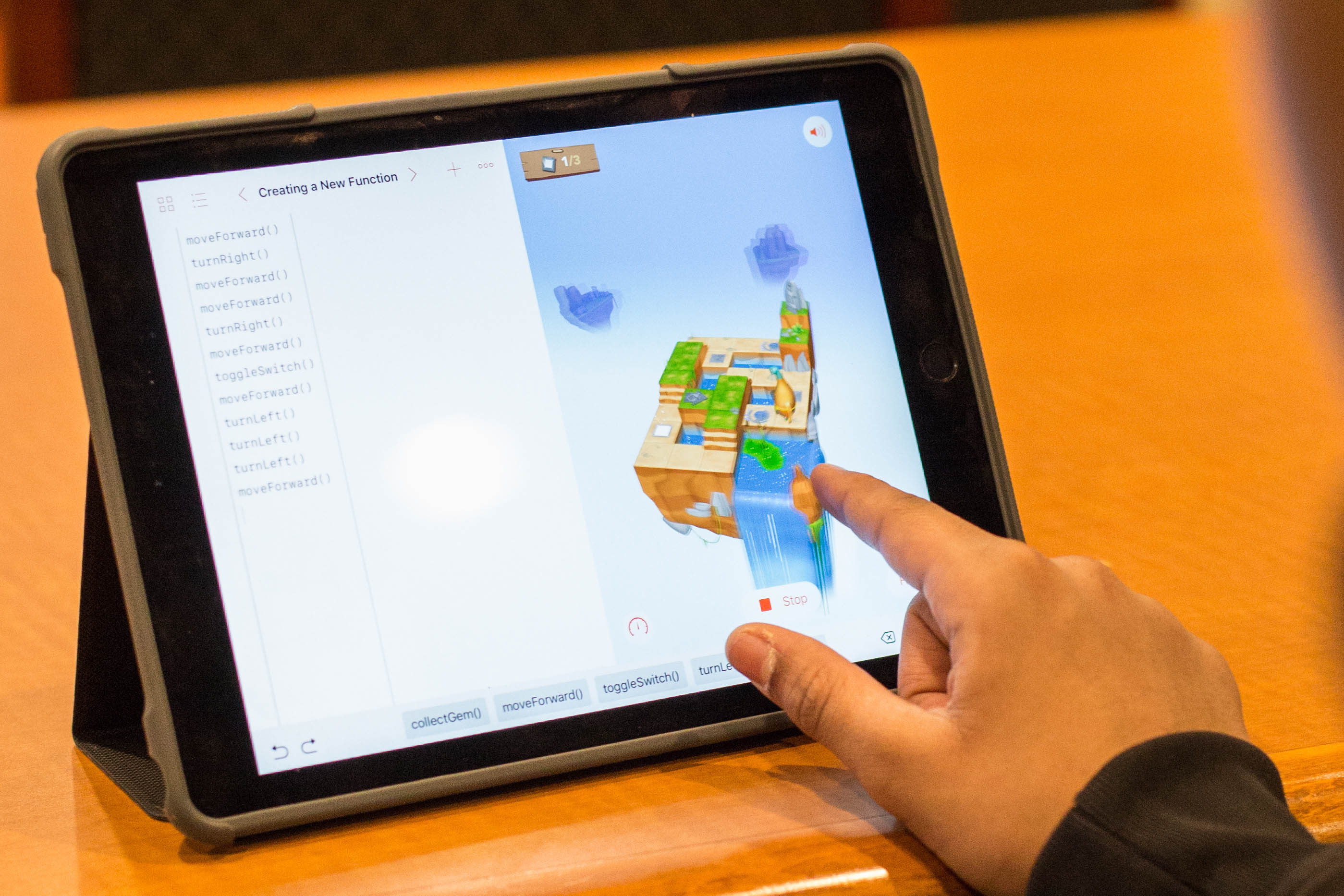Maryville University has received a grant of $124,710 from the Monsanto Fund for a new program designed to engage middle school girls in computer coding: C3 – Computing in the Context of Communication.
The grant will fund a summer program for a diverse group of 80 girls (grades 6 through 8) from the Ritenour and Jennings school districts to learn hands-on computer skills within the context of either video gaming or journalism. Sixteen teachers from those districts will also learn the computer programming curriculum, and each will receive a set of Chromebooks for ongoing use in their classrooms.
Computing jobs are increasing, yet only 39 percent are expected to be filled by 2022. Women and other underrepresented groups in computing could help fill this gap.
The need for this program is compelling. The number of women interested in majoring in computer science has declined by 64 percent since 2000. As a result, women — especially women of color — are severely under-represented in high-demand computer careers.
At the same time, computing jobs are increasing, yet only 39 percent are expected to be filled by 2022. Women and other underrepresented groups in computing could help fill this gap, but they must build their skills; ideally this should begin by middle school. Many local and national organizations are developing curriculum to engage more students in the study of computing and this curriculum fits into that national framework.
The program is an ideal match between two organizations — Monsanto Fund and Maryville University — that seek to improve employment opportunities in underserved communities through educational outreach. “When taking steps to close the gender gap in professions like computer programming, the importance of an engaging curriculum cannot be understated,” said Michelle Insco, Monsanto Fund program officer. “Maryville University has a proven track record of helping students connect with science and math by making lessons fun and relatable, and with the demand for talent at an all-time high, programs that can help diversify the workforce are increasingly important.”
The program will be led on the University’s West St. Louis County campus by three Maryville faculty members: Rebecca Dohrman, PhD, associate professor of communication; Steve Coxon, PhD, associate professor and director of gifted programs in education; and Dustin York, EdD, director of the undergraduate communication program and assistant professor.
This marks the third consecutive grant received from the Monsanto Fund to help students and teachers in underserved schools improve their skills in STEM (science, technology, engineering and math). Last year, Maryville received a grant of $120,000 for a program directed toward underserved youth: Children using Robotics for Engineering, Science, Technology, and Math (CREST-M).
“Projects like this one represent the very best of higher education and local foundation partnerships working together to solve a real-world problem through the development of research-based solutions,” Dohrman said. “Our work on this project is part of the broader St. Louis community’s effort to increase the STEM pipeline among our local communities and we are proud to be a part of that effort.”
Curriculum created for this program will be submitted for publication and online distribution, and will also be shared with other school districts throughout St. Louis.
“Coding is the language of the future,” Coxon said. “The partnership with Monsanto Fund will help to spur future employment in underserved communities and fill vital workforce needs. There are thousands of unfilled computing jobs right here in St Louis. At the same time, there is tremendous untapped talent across North County districts. This partnership serves to help provide solutions.”
About Monsanto Fund
The philanthropic arm of the Monsanto Company, the Monsanto Fund is a nonprofit organization dedicated to strengthening the communities where farm families and Monsanto Company employees live and work. Learn more at monsantofund.org.
 Monsanto C 3.H
Monsanto C 3.H